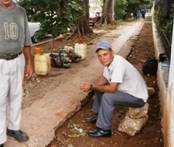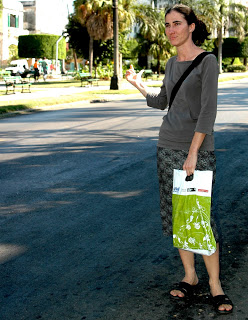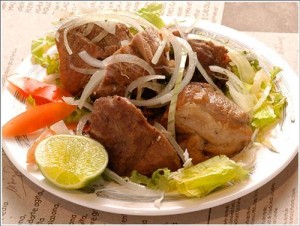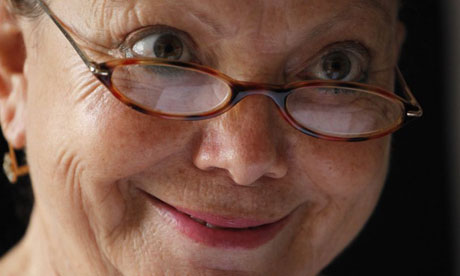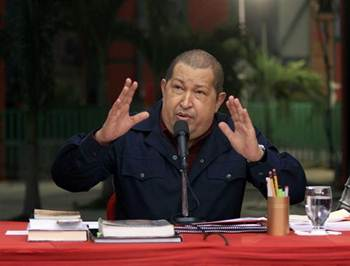
It seems that the guillotine of civil rights and liberties and the populist group hinge on the Venezuelan Constitution and in the political process that exists there to legitimate them. Hugo Chavez’s victory this October 7 took almost no one by surprise, despite the fact that the margin was not as wide as the newly elected president-candidate had announced.
I think that the inhabitants of the former Socialist republics of Eastern Europe, just like we Cubans, know that the caudillos do not understand the ceding of their place to anyone: what they call democracy and the transfer of powers, for them is a sign of weakness. They make a patriotic act of “detaching themselves from their position” only when health prevents them from continuing, death comes for them “to illuminate with such notable personalities the path to purgatory,” or because they have so ruined their countries, economically politically and socially, they have exhausted the alternatives.
I imagine that the historic Cuban leaders were very aware of the development of the lessons-elections in Venezuela, because the ability of the senior leadership and the stability and survival of Cuba depend on those votes (guaranteed). I don’t doubt that numerous resources in strategists, consultants, trainers, and logistics have taken the plane to Caracas along with the right-handed ballot boxes in the certain success of the lefties of continuism. No wonder, since the Venezuelan leader rose to power, he calls the former number one Cuban “my father.”
The victory of Chavez in Venezuela in February 1999 was made possible by the historic Cuban leaders, their military intelligence corps and their traditional propaganda team, trained first and specialized later, in electioneering mechanisms of the new Latin American so-called socialist democracies. They play chess ’in situ’ with human pieces and even have the luxury of invited foreigners and observers who authenticate the process. They will not run the risks again, as happened with the defeat of Daniel Ortega in 1990. But regardless of their overwhelming specialization in democratic constitutional perpetuity, the Cuban specialist apparently despise their compatriots so much, that they will not risk a procedure analogous to the strongman models of Latin America that help them to articulate and consolidate legally and internationally.
The government of our country continues with the single-party system and the same political and dictatorial structure, intolerant and discriminatory, that has allowed them to “give it time,” like the pony in the Venezuelan song. They have so abused this society that they fear that if they “loosened the reins” it would run wild in logical demands for justice and democracy. So they test election strategies in the distant lands, just in case… After all, they’ve exceeded their “threescore and ten” leading the largest of the Antillies, and it seems it doesn’t matter too much to them what happens when they’re gone.
Ergo, the “old horse” of totalitarian experience can meet with “a chestnut filly” of democracy, and as long as the Venezuelan people’s barrels of petroleum keep flowing like black gold, with which Chavez pays for his security and for remaining in power, there will be no mistakes and the “beloved” Latin American caudillos of the day will continue, mocking their people and the world.
![]()
October 16 2012



